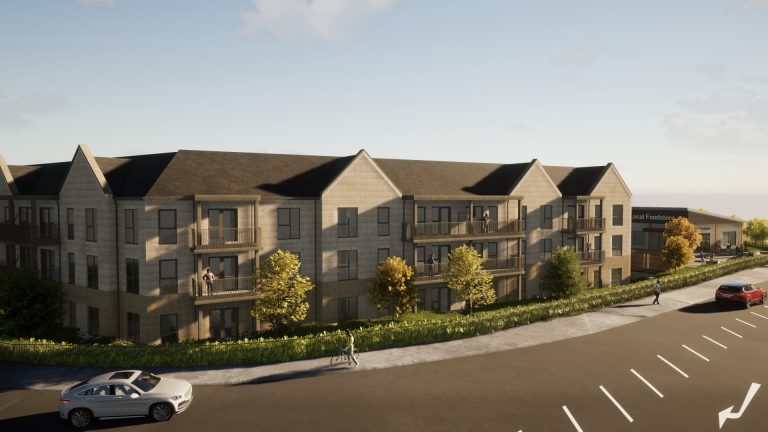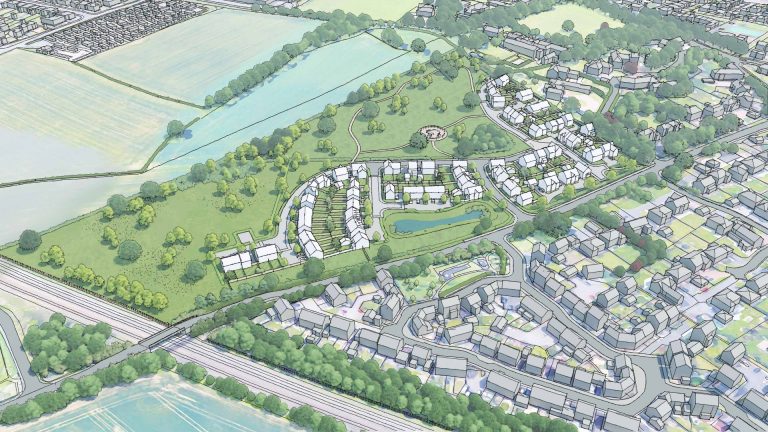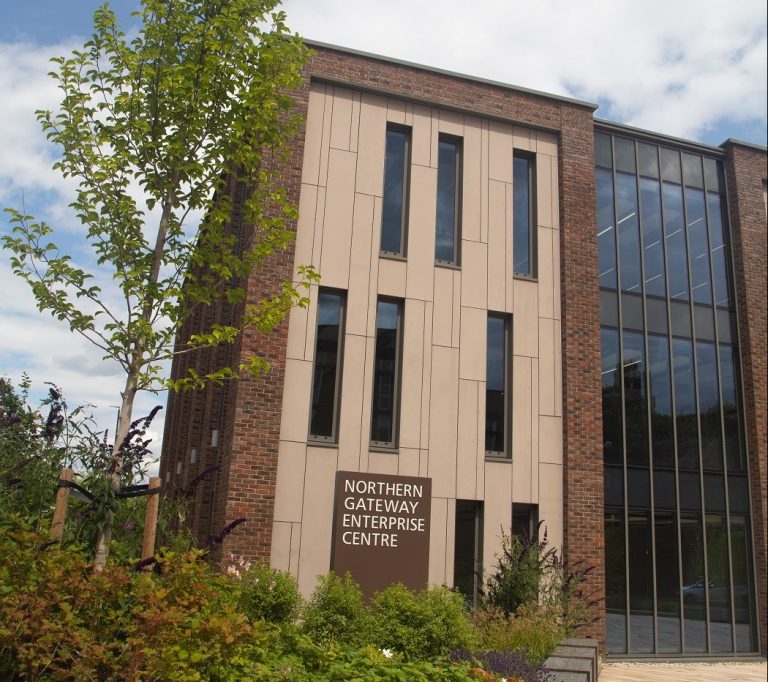Notts firm digs deep to fund new charity scheme
Government announces financial backing for SMR nuclear power
“We look forward to working with all interested parties – technology vendors, the supply chain, the wider industry and local communities as we move this essential programme forward.”
On top of today’s GBN competition launch, the government is also announcing today a grant funding package totalling up to £157 million: Up to £77.1 million for companies to accelerate advanced nuclear business development in the UK and support advanced nuclear designs to enter UK regulation, maximising the chance of small and advanced modular reactors being built during the next Parliament. Up to £58 million funding for the further development and design of a type of advanced modular reactor (AMR) and next generation fuel. AMRs operate at a higher temperature than SMRs and as a result they could provide high temperature heat for hydrogen and other industrial uses alongside nuclear power. Tom Greatrex, Chief Executive of the Nuclear Industry Association, said: “The launch of GBN marks a new era for nuclear deployment in the UK – helping drive a programme of construction at pace and at scale to strengthen our energy security, create good jobs across the country, and advance our net zero future by providing up to 25% of our future power needs. “Focus on the SMR selection will demonstrate the commitment to deployment of innovative technologies and open up new opportunities for the UK industrial supply chain here and abroad. There a range of sites and communities across the country ready to host SMR technology, alongside the large scale nuclear capacity we will also need.“Britain has an important leadership role in the global nuclear industry, and nowhere more so than in our determination to drive Russia out of the nuclear fuel markets. The government’s Nuclear Fuel Fund will bolster those world-class capabilities that make us uniquely placed to help our allies replace Russian supplies with Western nuclear fuel.”
New support set for Ilkeston and Long Eaton town centre shops
Flooding hardship fund opens to provide emergency payments to Derbyshire businesses
Plans submitted for Edwalton retirement apartments and convenience store
Developer Charterpoint and retirement housing provider Anchor have submitted a joint planning application for 77 retirement apartments at Edwalton, near Nottingham. A convenience store, which will be operated separately, is also part of the plans.
Earmarked for land on the corner of Rose Way and Melton Road, the retirement scheme would provide a range of one and two-bedroom apartments in a three-storey block.
The proposals also include a residents’ restaurant, lounge, outdoor dining terrace, hairdressing salon, beauty and treatment studio, guest suite, and a courtyard garden and will be operated by Anchor, England’s largest not-for-profit provider of housing and care for people in later life.
The apartments will be a mix of shared ownership and rental properties – filling a gap in the market in the West Bridgford area.
A single-storey convenience store is also planned for the 2.2 acre site, both accessed off Rose Way, which will be operated separately from the retirement scheme.
The site has outline planning permission for development, but now Charterpoint and Anchor have submitted detailed designs for the land to Rushcliffe Borough Council.
Charterpoint CEO Adrian Goose said: “This is a prominent site in an area of Edwalton which has seen considerable development in recent years, providing a range of housing and community facilities.
“Our integrated plan will introduce a handy convenience store for local shopping needs to augment what is there already. This plan, submitted in conjunction with Anchor, will fill a gap in the market and create much-needed retirement apartments for the area, helping to free up larger family homes in Edwalton and West Bridgford too.”
Victoria Mager, director of development delivery at Anchor, said: “We are looking forward to working with Charterpoint on the development of high quality, affordable independent living apartments in Edwalton. In line with Anchor’s vision, this development takes us one step closer to delivering 5,700 homes where people can love living in later life over ten years.”
The plans for the Edwalton site have been designed by Brewster Bye Architects.
Developer submits plans to build 79 new homes in Syston
Bellway Strategic Land is looking to secure planning permission for up to 79 new homes in Syston. The housebuilder has submitted an outline planning application for a 16.8-acre site identified for housing off Barkby Lane, to the south of the town.
The land is bordered by the railway line to the east, existing properties to the west, and Barkby Lane to the north. The site forms the northern part of a site identified as an allocation for residential development by Charnwood Borough Council in their emerging Charnwood Local Plan. The plan is currently being considered by the government and Charnwood Borough Council will be looking to adopt it as soon as they can.
Bellway Strategic Land has also submitted a planning application for up to 130 homes on the southern portion of the site, which is accessed off Barkby Thorpe Lane in Thurmaston. Together, the two applications, which are separated by a green corridor, will help deliver the housing allocation and improve land supply in Charnwood in accordance with the local plan.
The proposals for the Barkby Lane site in Syston delivers 30 per cent of the homes as affordable housing for low-cost rent or shared ownership, with 10 acres of open space created including a children’s play area and a network of footpaths and cycleways, along with areas for Biodiversity Net Gain.
Fergus Thomas, Bellway Strategic Land Director for the Central region, said: “We have worked closely with Charnwood Borough Council to develop our plans for Barkby Lane in Syston and ensure the proposed scheme meets the needs of the local community.
“There is an identifiable need for new housing in the area and this is a site which is close to town centre amenities and will align with the emerging Charnwood Local Plan.
“Our outline proposals include a primary tree-lined street which will lead into the site from Barkby Lane while an ‘arrival space’ in the north-western corner of the site will greet pedestrians entering the development via a new footpath link.
“Our sustainable design sets aside an area of 10 acres of open space within the development, which includes an area for children to play, recreational walking, and would feature new planting alongside the retention of trees and hedgerows wherever possible. Areas of green infrastructure in the east and south of the site will create new habitats of ecological value, such as scrub and wildflower grassland, to help protect and promote local wildlife.
“Care has been taken in the preparation of the illustrative layout to show how a detailed scheme could be brought forward as the next stage of the planning process that positively responds to local character. In particular, assessments are presented in the submitted documents that show an understanding of local materials and of how built form and massing create interest along Barkby Lane.”
Industry continues to drive forward digital revolution towards Net Zero
Major Derby business park plans get the go ahead
£3.5m award to create new cutting-edge automotive training facilities in Derby
80% of offices let at Chesterfield enterprise centre
After being open for just one year, 80% of offices are now let in Chesterfield’s flagship enterprise centre.
The Northern Gateway Enterprise Centre was officially opened in July 2022 and to mark one year since opening an informal networking session was held on Thursday 13 July to celebrate with tenants.
Councillor Tricia Gilby, leader of Chesterfield Borough Council and cabinet member for economic growth, said: “We faced many challenges when developing this building but it was a cornerstone of our Covid recovery plan and to see the building almost fully let just one year after opening shows that our local economy is strong and that Chesterfield is a great place to do business.
“The building is home to a really diverse range of businesses with lots of them being new startups that we hope will grow and thrive in our town. It was fantastic to speak with our tenants and learn more about what they do and the opportunities they are creating for local people.”
The Enterprise Centre includes 32 office suites in a range of sizes. It has meeting facilities allowing businesses to host hybrid meetings and secure cycle parking and shower facilities to allow tenants to bike to work – supporting low carbon transport options. There are also features like the break out room where businesses can network and find out how they can work together.
But the centre provides more than office space, as tenants can access bespoke business support services to help them grow and develop, supporting the creation of more jobs and boosting the local economy.
The building also boasts some first-class sustainability features which help keep energy use down and ensure the building is fit for the future – supporting to the council’s target of becoming a carbon neutral organisation by 2030.
The Northern Gateway Enterprise Centre was part funded through a grant from the South Yorkshire Mayoral Combined Authority Investment Fund, with additional funding provided by Chesterfield Borough Council.












